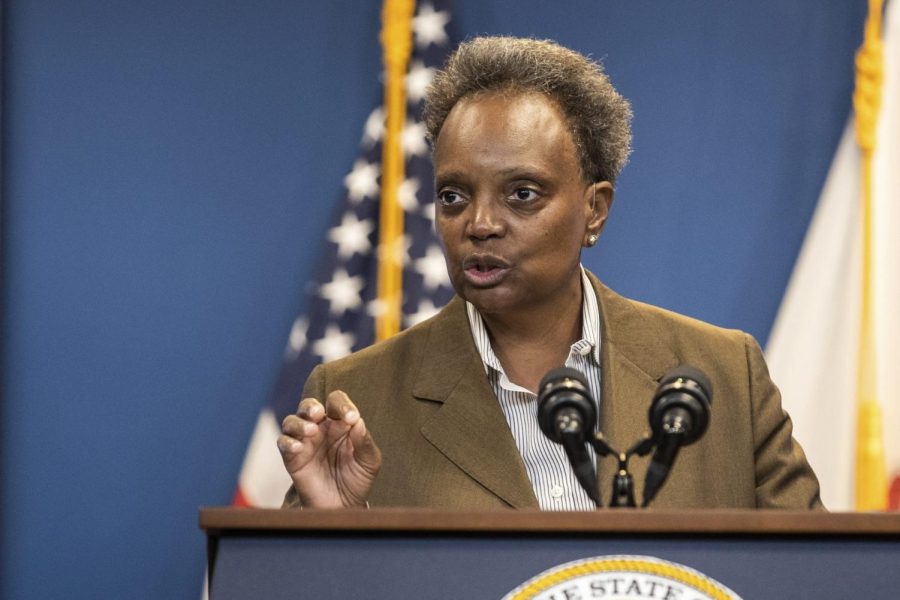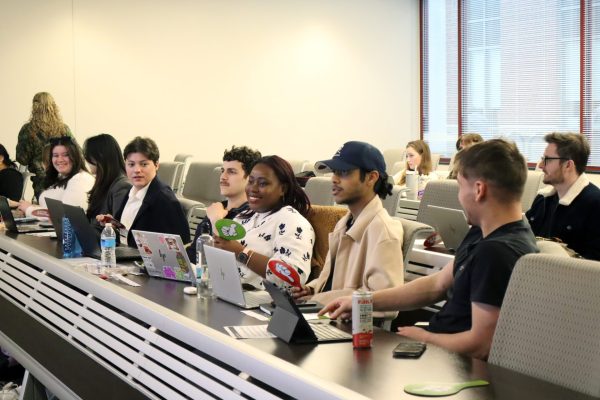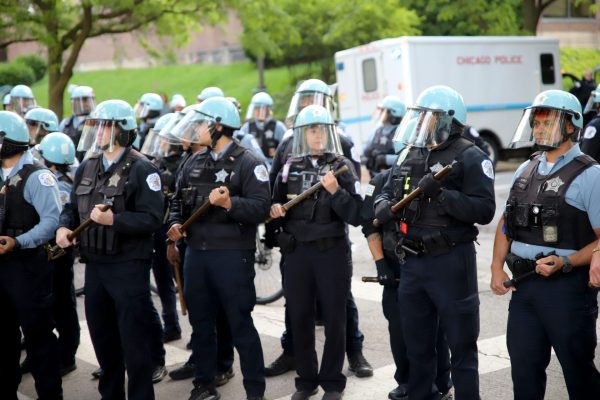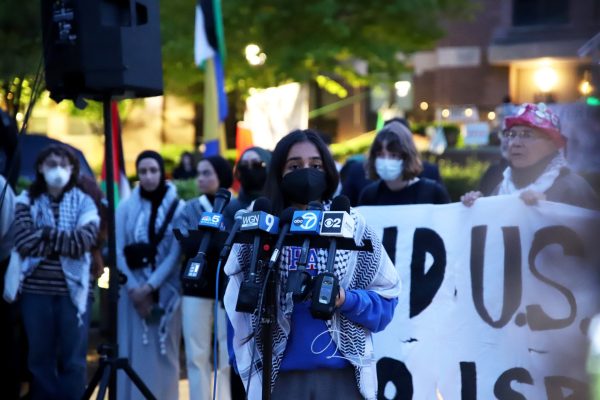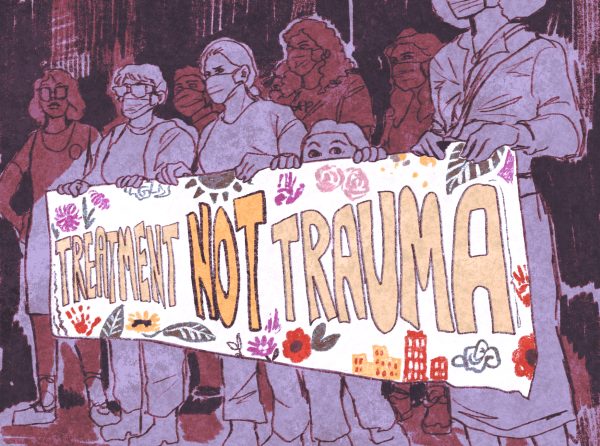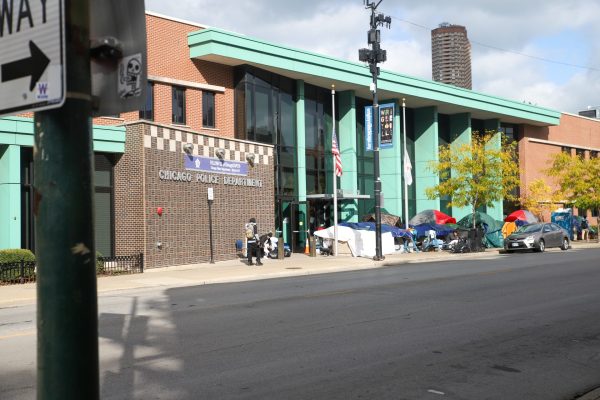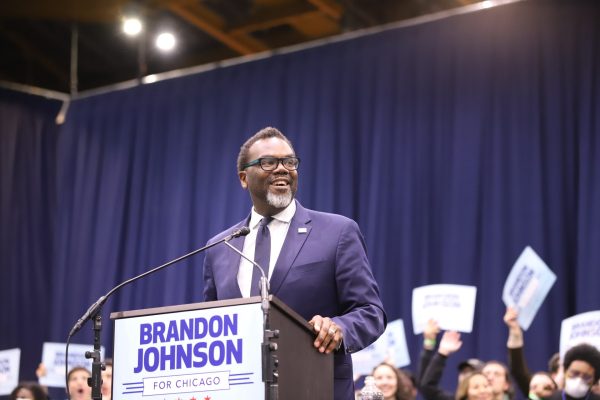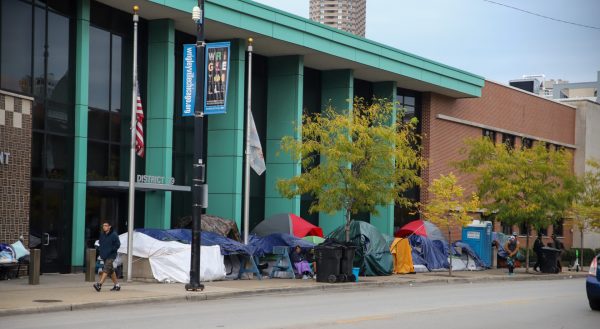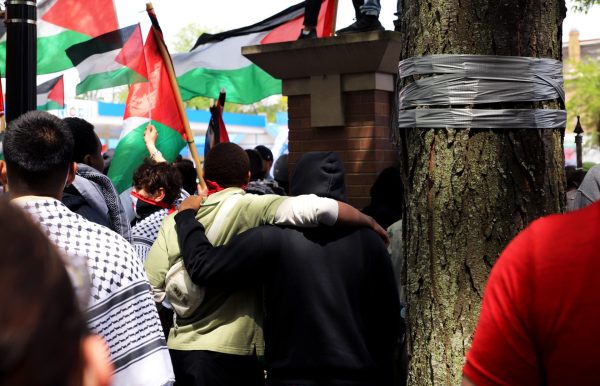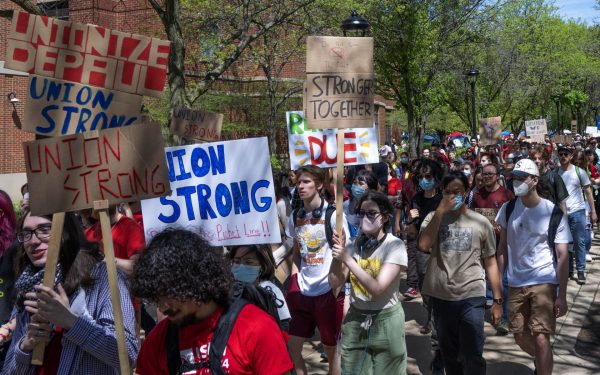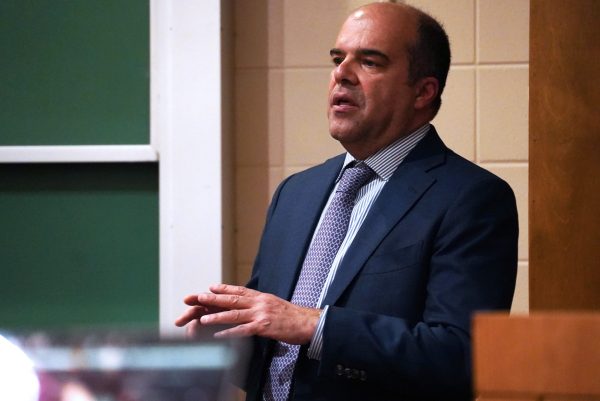Lightfoot solicits CPS students to volunteer for mayoral campaign for extra credit
Pat Nabong/ Chicago Sun-Times via AP
Caption: Chicago Mayor Lori Lightfoot speaks during a press conference in the Greektown neighborhood, of Chicago, Sept. 14, 2022. Lightfoot is one of nine candidates running.
When professor Nick Kachiroubas logged into his DePaul Outlook account, he was surprised to find an email from Mayor Lori Lightfoot’s re-election campaign team.
“As the race heats up, we’re looking to enrich our office with some amazing volunteers!” a Lightfoot staffer wrote in the email. “Could you please share this opportunity with your students?”
The email continued to note that “students are eligible to earn class credit” through the program.
Kachiroubas teaches at DePaul’s School of Public Service, focusing on topics including ethics, local government administration and public policy.
He said he did not know how the campaign sought out his contact information, and although it was surprising, he did not feel compelled to take any kind of action.
“As a professor, I don’t mind getting those kinds of emails,” Kachiroubas said. “But I don’t feel it’s appropriate in my role to tell students they have to do this.”
Kachiroubas sent the email to his trash folder and thought nothing of it until a report came out from WTTW Chicago that turned the email into a bigger story.
Kachiroubas was just one of many educators across Chicago to receive an email, including Chicago Public School (CPS) teachers. According to Kachiroubas, there is a difference between soliciting volunteers from college professors at private institutions like DePaul and soliciting volunteers from public school teachers. He said it was “not appropriate” for the mayor’s campaign to use public city-owned emails for private interest.
One day after WTTW broke the story about the ethical dilemma, Lightfoot held a press conference addressing the emails.
The mayor said that she did not know about the emails until after they were sent. Lightfoot said she found out the staffer sent the emails to CPS teachers after news outlets reached out to her campaign for comment.
Lightfoot said that only one staffer was involved in sending emails and both the individual and the rest of the campaign were briefed on why CPS teachers’ public emails should be left out of campaign efforts.
“The outreach to the CPS teachers via their emails was a mistake, [it] should not have happened and it’s not going to happen again,” Lightfoot said in the conference.
She continued to add that engaging young people was an important part of her campaign, but this was not the correct way to reach out to the youth.
“Obviously, I knew that there were efforts being made to recruit volunteers… and certainly if I had known that there were CPS emails being used, I would’ve put a stop to it before yesterday,” Lightfoot said in the conference.
Craig Sautter is a professor at DePaul’s School of Continuing and Professional Studies and an expert in elections and political media.
Sautter believes that this mistake will not hurt Lightfoot in the long run. He said that it was important for the campaign to be called out for the ethics dilemma. It was not clear whether the Lightfoot campaign coordinated with schools to create a program for students to earn class credit and it was unethical to promise or suggest as such.
However, after Lightfoot hosted her press conference, Sautter said it was clear the mayor wants to move on and separate her campaign from her public office.
According to Sautter, it was easy for the news media to pick up and run the story about Lightfoot’s campaign emails. He feels that news outlets should focus more on covering policy.
“There are big issues that the media should be talking about, and pressing the campaigns and pressing the candidates about,” Sautter said. “This happens in almost every campaign where some irrelevant issue rises to the top and takes a lot of press time for a couple of days.”
Another outshoot of the email scandal is the importance of young people getting involved in their local elections.
Both Kachiroubas and Sautter said that they would encourage students to get involved in a campaign as a part of civic duty, to learn and to make connections.
Suzan Arab is a political science student at DePaul who volunteers for mayoral candidate Ja’Mal Green’s campaign doing phone banking, talking to voters and helping people find voting locations.
She joined the campaign by messaging its social media pages and asking how she could get involved.
According to Arab, young people should get involved with campaigning no matter their major or passion. Arab said there are many different roles within a campaign and that students have opportunities to learn about areas outside of politics and law as well.
Arab says that volunteering for a campaign is a part of having your voice and values heard. It is not something that only helps the volunteer or the candidate, but it helps the community.
“When you become more involved in your community, your community benefits from that and communities thrive off of civic participation,” Arab said.
She said she hopes that rather than soliciting educators and providing incentives to volunteer, candidates should reach out to young people to explain why their participation matters.
“When you explain to them the importance of volunteering and doing your civic duty, then naturally, they’ll be inclined to join because this does affect them,” Arab said.
Chicago still has a wide field of mayoral and aldermanic candidates running. If students want to get involved, they can contact the campaigns of their choosing.
Early voting begins Thursday, Jan. 26 and the Municipal Election will be Feb. 28. If no candidate yields a majority of the vote, a runoff election is slated for April 4.


